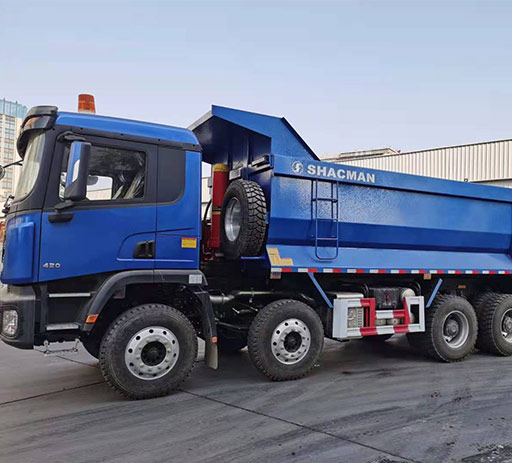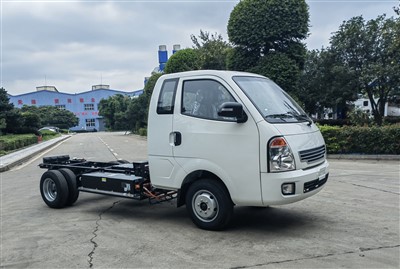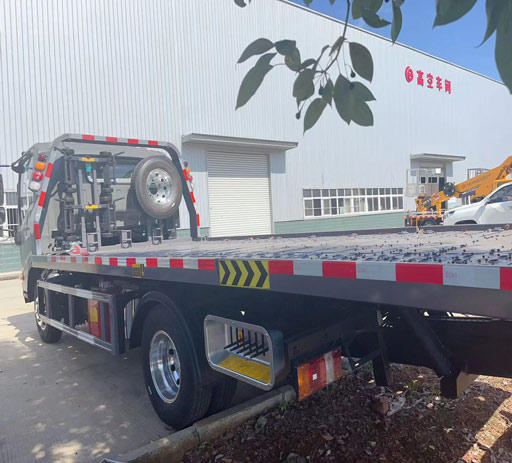New Vacuum Trucks for Sale: Everything You Need to Know
Introduction to Vacuum Trucks
Vacuum trucks are specialized vehicles designed to transport and dispose of liquids, sludges, and other materials effectively. These trucks are essential for a variety of industries, including construction, wastewater management, and environmental services. If you’re in the market for a vacuum truck, exploring new options can lead to better efficiency and reliability. This article discusses everything you need to consider when looking for new vacuum trucks for sale.
Understanding Vacuum Trucks
What is a Vacuum Truck?
A vacuum truck, also known as a vacuum tanker, uses suction to remove fluids and debris from areas that are hard to access. The truck has a large tank and a powerful vacuum system that allows it to collect and transport waste efficiently. These trucks come in various configurations, depending on their intended use.
Types of Vacuum Trucks
- Liquid Waste Vacuum Trucks: Primarily used for sewage and wastewater management.
- Grease Trap Vacuum Trucks: Designed specifically for cleaning grease traps and interceptors.
- Industrial Vacuum Trucks: Built for heavy-duty applications, capable of handling different materials, including hazardous waste.
- Portable Restroom Vacuum Trucks: Used for servicing portable toilets at events or construction sites.
How Vacuum Trucks Work
Vacuum trucks work on the principle of suction. A powerful vacuum pump creates a low-pressure area inside the tank, allowing it to draw in fluids and debris through a hose. The collected material is stored in the tank until it can be disposed of at a designated facility.
Features to Look for in New Vacuum Trucks
Vacuum Pump Performance
The efficiency of a vacuum truck largely depends on the vacuum pump’s performance. Look for trucks with high CFM (cubic feet per minute) ratings, as this indicates better suction power. Models with dual or triple-stage pumps can provide additional power for heavy applications.
Tank Material and Capacity
New vacuum trucks are constructed from various materials, including stainless steel and aluminum. Stainless steel is more durable and resistant to corrosion, making it ideal for transporting harsh materials. Tank capacity is another vital factor, as it determines how much material the truck can haul at once. Common capacities range from 500 to 3,000 gallons.
Common Tank Sizes

| Tank Size (Gallons) | Typical Uses |
|---|---|
| 500 | Portable restroom servicing |
| 1,200 | Sewage and wastewater management |
| 2,500 | Industrial waste collection |
Hoses and Attachments
The hoses used with vacuum trucks should be durable and capable of handling the material being transported. Look for models that come with multiple hose options, as well as various nozzles and attachments for different applications. This flexibility allows operators to use the truck in diverse situations.
Safety Features
Safety is paramount when operating vacuum trucks. Look for new models equipped with emergency shut-off valves, pressure relief valves, and safety alarms. Additionally, models with a secondary containment system can prevent spills in case of tank failure.
Comfort and Usability
The operator’s comfort and the truck’s ease of use can greatly affect productivity. Features to consider include ergonomic controls, spacious cabs, and intuitive layout for easy access to controls and equipment. Look for models with good visibility and user-friendly designs.
Buying New Vacuum Trucks: The Process
Research and Identify Your Needs
Before purchasing a vacuum truck, conduct thorough research to identify your specific needs. Consider factors such as:
- The types of materials you will transport
- Your average load sizes and tank capacity requirements
- The frequency of use and durability expectations

Budgeting for a New Vacuum Truck
Establishing a budget is critical. The price of new vacuum trucks can range significantly based on features, size, and customization. Consider not just the purchase price but also maintenance, insurance, and operating costs.
Where to Purchase New Vacuum Trucks
New vacuum trucks can be purchased from various sources, including:
- Dealerships: Authorized dealerships often provide warranties and service support.
- Manufacturers: Buying directly from manufacturers might give better pricing and customization options.
- Online Marketplaces: Websites dedicated to heavy equipment sales can provide competitive pricing and a wide selection.
Inspecting and Testing the Truck
Once you find a truck that meets your needs, ensure to inspect it thoroughly. Check for any visible damages, mechanical performance, and functionality of all systems. If possible, conduct a test run to assess the truck’s performance under your typical operating conditions.

Financing Options for New Vacuum Trucks
Loan Financing
Many businesses choose to finance their vacuum truck purchases through loans. Various lenders provide financing specifically for heavy equipment, offering competitive interest rates and flexible repayment terms.
Leasing vs. Buying
Leasing can be an attractive option if your company needs a vacuum truck for a limited time or you want to avoid the high upfront costs associated with buying. However, buying a truck earns you an asset and may be more economical in the long term.
Maintenance and Care for Vacuum Trucks
Routine Maintenance Practices
Regular maintenance can prolong the life of your vacuum truck. Common practices include:
- Regular oil and fluid checks
- Frequent inspections of hoses and seals
- Cleaning the tank and vacuum system
Common Repairs and Issues
Be aware of common repairs that may arise, including:
- Vacuum pump repairs
- Leaks in hoses or seals
- Electrical issues with controls
Choosing a Maintenance Service Provider
Choosing a reputable service provider for maintenance ensures your vacuum truck remains in optimal condition. Look for service centers with experience in vacuum truck technology and certified technicians.
The Environmental Impact of Vacuum Trucks
Sustainable Practices in Vacuum Truck Operations
With growing concerns about the environment, much emphasis is now placed on sustainable practices. Operating vacuum trucks with low emissions and ensuring proper disposal of waste can significantly minimize environmental impact.
Regulatory Compliance and Standards
Vacuum trucks must comply with various regulations related to waste transportation and disposal. Familiarize yourself with local and federal policies to ensure your operations remain compliant.
FAQs About New Vacuum Trucks for Sale
1. How much does a new vacuum truck cost?
The cost of a new vacuum truck can range from $50,000 to $300,000, depending on size, features, and customization options.
2. What are the most important features to consider?
Key features to consider include vacuum pump performance, tank material, safety features, and comfort for the operator.
3. How do I maintain a vacuum truck?
Regular maintenance includes oil checks, inspection of hoses and seals, and cleaning the tank and pump systems to prevent failures.
4. Can I finance a vacuum truck purchase?
Yes, several lenders offer financing options for purchasing vacuum trucks, including loans and leasing options.
5. What types of materials can vacuum trucks transport?
Vacuum trucks can transport various materials, including liquid waste, sludges, and even hazardous materials, depending on their design.
6. Are there any environmental regulations for using vacuum trucks?
Yes, regulatory compliance with local and federal waste transportation and disposal laws is crucial for operating vacuum trucks responsibly.
